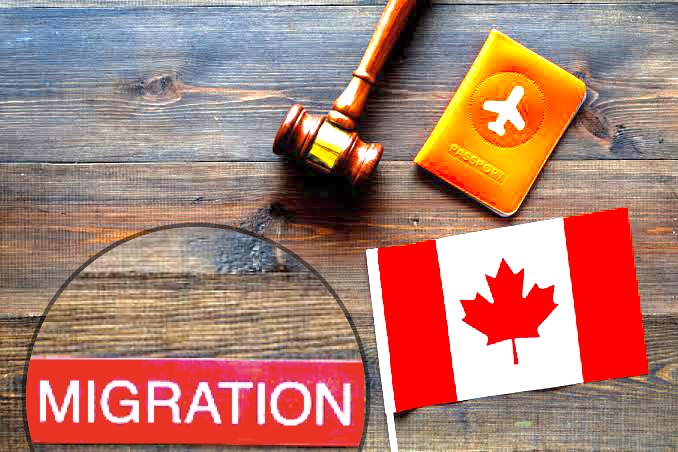6 Questions They May Ask You at the Airport When You Come to Canada for Work and How to Answer Them Correctly
Travelling to Canada to work is an amazing opportunity but it also presents its own fair share of responsibilities which includes answering a series of questions from your immigration officer. The nature of these questions vary but they all have one thing in common; that’s to be sure your entry into Canada is legal. For good reasons, this is one of the most important steps in your journey in moving to Canada and it requires that you know how to play your cards well to avoid rejection. So, in this article, we’ll highlight 6 questions they may ask you at the airport when you come to Canada for work and how to answer them correctly. But before we delve into that, there are a handful of things you need to know along the way. Let’s go!
Thousands of people apply for Canadian visas but only a few entries are accepted because there’s always a reason for rejection. Let’s review some of them below:
• Incomplete or falsified documents
All the information contained in your documents must be true and complete. You must ensure you have every document accounted for, and free from errors. The dates, payments, and forms must tally with each other. This is because any form of error could warrant suspicion and possibly rejection.
Canada, just like other countries has their eligibility criteria. Therefore, you must be sure you meet up with their requirements before applying. This requirement could be in age, education or work experience. You must have supporting documents to prove this.
As part of the Canadian visa requirement, you’re expected to have enough financial resources or backing to prove you can survive in Canada. You must show proof that you can live and work comfortably in Canada by providing your bank statement or supporting documents (from sponsors or relatives). Failure to do thismay attract your visa rejection.
If you’ve had an immigration issue, it can possibly affect your chances. Issues may be false reports, documents, and overstay (that’s if you’ve travelled before now). But like they say, there’s always a second chance if you’re in your best conduct and ethics and your documents are complete and free of errors.
Questions They May Ask You at the Airport When You Come to Canada for Work and How to Answer Them Correctly
Now that we know the possible reasons for rejection, let’s review the questions they may ask you at the airport when you come to Canada to work and how to answer them correctly.
Ques.1: What is the purpose of your visit to Canada?
When immigration officers ask about your purpose of visit to Canada, it’s important to provide a brief and precise answer. This is an opportunity for you to make your intentions known and clear all suspicions and doubts about the job. There are some things you should keep in mind when answering this question and this would be highlighted below.
Importance of providing a concise and precise answer
Immigration officers are looking for straightforward answers that explain why you’re visiting Canada. It’s important to avoid mincing words or being ambiguous in your answer. This will create suspicions and doubts. The importance of this is that you sound credible enough and that the information you provide is convincing enough to the officer. This way, you’ll have successfully answered or passed this test.
How to answer: Start by explaining the purpose of your visit, emphasizing the work details like the nature and duration of the job. If you have an idea about the working conditions, this is a good time to say that as well. Make sure to provide the details of the employer and duration (months or years) if mentioned in the agreement or contract.
Finally, you have to highlight your contribution and positive impact on the company and the Canadian economy as well. This part is especially important because it shows your positive attitude towards work and making a difference in the Canadian economy.
Essentially, this information is a test of your honesty, and preparedness for your application to work in Canada. With all this covered, there’s absolutely nothing to worry about because you’ve proven your point beyond a reasonable doubt.
Ques. 2: Do you have a job offer in Canada?
Having a job offer in Canada is often a crucial factor in obtaining a work visa. Immigration officers want to ensure that you have a legitimate employment opportunity and that your visit aligns with the purpose of your visa. A job offer shows that you have secured employment, which contributes to the Canadian economy and strengthens your ties to the country during your stay.
Importance of providing accurate information
It’s essential to provide accurate information when answering this question. Immigration authorities may verify the details you provide, so any discrepancies can lead to complications or even visa rejection. Be transparent and truthful about the job offer, including the employer’s name, the position you have been offered, and any relevant employment details.
How to answer: An example could be: “Yes, I have a job offer from [name of employer]. I have been offered a position as [position/title] within the company. This job offer aligns with my qualifications and expertise, and I’m excited to contribute my skills to the company and the Canadian workforce. The employer has provided me with an employment contract, which outlines the terms and conditions of my employment.”
By clearly explaining the job offer and providing details about the employer, position, and employment contract, you demonstrate that your job offer is legit and your preparedness to work in Canada. This response helps immigration officers understand that you have a concrete employment opportunity and that your visit is supported by a valid job offer.
Ques. 3: How long do you want to stay in Canada?
Now, this can be somewhat challenging for many. But not to worry, it’s not a big deal. Immigration officers need to know the length of your intended stay in Canada to ensure that it aligns with the terms of your visa or work permit. It’s important to have a clear understanding of your planned duration and be able to provide supporting documents if requested.
How to answer: You need to provide the exact duration of stay, referencing visa or work permit details. An appropriate responsemight be: “I plan to stay in Canada for [specify the duration, such as how many months or years you wish to stay in the country], following the guidelines outlined in my [type of visa/work permit]. I have extensively familiarized myself with the terms and obligations of my visa/work permit, and I am committed to strictly abiding by all the stipulations throughout my stay.” I am committed to returning to my home country before the expiration of my authorisation. Remember to have your supporting documents, such as your visa approval letter or work permit, readily available to provide when requested.
Ques. 4: Where will you be staying in Canada?
When immigration agents ask where you will be staying while visiting Canada, they are trying to figure out whether you have a safe and suitable location to stay. In addition to assessing your ties to the nation, this question helps to ensure that you have planned your stay properly.
How to answer: To answer this question, you have to mention your temporary residence or accommodation details. You can show that you have made the necessary preparations and have a secure location to stay during your visit by giving the precise address or name of your temporary residence.
It’s crucial to remember that if you have made lodging arrangements, such as staying with a friend or relative, you must include their address and a brief description of the situation. Immigration authorities want to be certain that your accommodations are suitable and that you have a solid plan in place.
Remember to have the necessary paperwork related to your accommodation, such as hotel reservations or a letter of invitation, readily available in case the need arises.
Ques. 5: What is your educational and professional background?
This question helps them evaluate your suitability for the job and determine if your skills align with the requirements of your employment. It’s important to highlight the alignment between your educational and professional background and the job you have been offered in Canada. By showcasing your qualifications and experience, you show that you are well-equipped to contribute to the Canadian workforce and fulfil the responsibilities of your intended employment
How to answer: In your response, provide a summary of your educational qualifications, mentioning the degree or certification you have obtained and the name of the educational institution. Then, highlight your professional experience and any specific skills or areas of expertise that are relevant to the job you have been offered in Canada.
Remember to remain concise and focused on the key details of your educational and professional background. Avoid providing excessive information that may not be directly relevant to your intended work in Canada. Providing a clear and concise summary helps immigration officers assess your qualifications and strengthens your case for entry into the country for work purposes.
Ques. 6: Do you have any family or relatives in Canada?
If you have family members or relatives residing in Canada, it is important to provide accurate and truthful information about their presence in the country. This can include immediate family members, such as parents, siblings, or spouses, as well as extended family members who are currently residing in Canada.
How to answer: You need to share details about family members or relatives, if applicable.
An appropriate reply might be: “Indeed, I do have [family members/relatives] residing in Canada.” [Provide the relationship and names of the family members]. They have been residing in Canada for [duration]. While I value their presence in Canada, my primary purpose of visiting Canada is for employment, and I have made separate arrangements for my own accommodation and support during my stay.” In your response, kindly provide the names and relationships of your family members or relatives who are currently living in Canada. This helps immigration officers understand your familial connections and potential support system in the country.
Similarly, state that your visit is primarily for employment purposes, indicating that you have separate arrangements for your own accommodation and support during your stay. This part gives the notion that you’re not going to be overly dependent on your family and relatives in Canada.
If you don’t have any family members or relatives in Canada, simply respond with: “No, I do not have any family members or relatives in Canada. My visit is solely for employment purposes, and I have made independent arrangements for my accommodation and support during my stay.”
Things to Remember
Remember when you’re asked about the purpose of your visit, try asmuch as possible to be straightforward, and emphasize theemployment details and duration. When discussing a job offer, shareaccurate information about the employer and position.
When asked about the duration of your stay, provide the exactduration and refer to your visa or work permit details. Regardingyour accommodation, confidently share the address or details ofyour temporary residence. And when discussing your educationaland professional background, highlight relevant qualifications andexperience.
Lastly, if asked about family or relatives in Canada, provide truthfulinformation if applicable, but always emphasize that your primarypurpose is work-related.
The questions you’ll be asked by your immigration officer are not necessarily difficult to answer. By understanding the importance of providing clear and concise answers, addressing concerns about your work-related intentions, and emphasizing key details, you can increase your chances of answering these questions correctly. By following these suggestions and remaining honest and transparent throughout the process, you can approach these questions with confidence and increase your chances of a smooth entry into Canada for work. So, get ready to embark on your exciting journey to Canada and make your work experience a truly enriching one.




